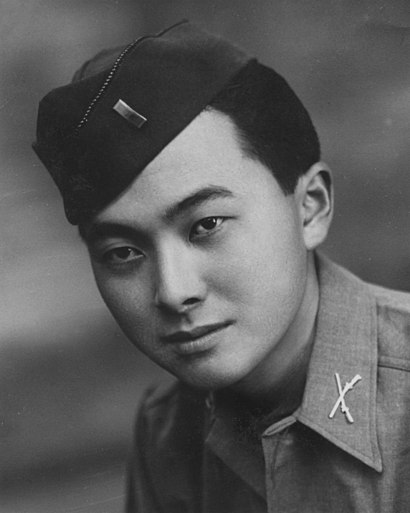Senator Daniel Inouye died yesterday at age 88.

Inouye is one of the few people in American politics that I admired almost equally after I became a conservative as I did when I was still an annoying little liberal.
Of Japanese-American (“Nisei”) descent, he recounted seeing the Japanese planes flying over on their way to Pearl Harbor. Dreaming of being a doctor, he volunteered to help with casualties in the hospitals immediately after the attack.
But the Army wouldn’t take him, or any Nisei, until 1943, when the ban on Nisei enlistment was dropped. Inouye joined the Army’s 442nd Infantry Regiment, an all-Nisei unit, and was promoted to Sergeant in his first year. The 442nd fought in Italy, and then in the Vosges Mountains of southern France. There, Inouye had his first brush with death; a German bullet that hit him right above the heart was deflected by a couple of silver dollars Inouye carried for luck.

The dollars were lost – but the luck stayed with him – in the engagement for which he won the Bronze Star (and, eventually, the Medal of Honor). On April 21, 1945, Inouye’s platoon was assaulting a German strongpoint in Tuscany when three German machine guns opened up from 40 yards away, pinning the platoon down. Inouye stood up to lead his platoon in a counterattack, and was shot in the stomach.
And he ignored that, and attacked; he knocked out the first German gun with a couple of grenades and his Tommy gun. This rallied the platoon, which destroyed the second machine gun.
Weak from blood loss, Inouye was nonetheless sneaking up on the third bunker under covering fire from the platoon, holding a grenade in his right hand, when a German inside fired a rifle grenade – a grenade that’s launched from the end of a rifle barrel – at him from 20-odd feet away. The grenade hit him in the right elbow, mangling his arm and destroying the nerves leading to the hand, leaving his fist clenched tightly around the live grenade as the German in the bunker frantically worked to rack up another round to finish Inouye off.
Using his left hand to unclamp the grenade from his frozen right hand, Inouye tossed the grenade, killing his attacker and going on to knock out the third machine gun firing his Tommy gun one-handed.
If it were in a movie, nobody would believe it.
His arm was amputated in the hospital, derailing his plans to become a surgeon. Incredibly, while at the hospital he met future political colleagues Phil Hart (a future Democrat Senator who was injured at Normandy) and Bob Dole (who also had an arm shredded by a hand grenade in Italy).
He went, instead, to law school, and then into Hawaii’s territorial legislature, where he was serving when Hawaii became a state. Elected as one of Hawaii’s first representatives, he moved into the Senate in 1963, and has been there ever since.
Like most of Hawaii’s Japanese-American community, Inouye was a liberal. But he came by his liberalism the honest way; an ideology that preaches grievance and equality of outcome rings less hollow coming from someone who’s seen genuine oppression, as Japanese-Americans surely did in the twenties and thirties. And like many liberals of his generation – JFK, LBJ, Tom Lyden – like the conservatives of his age group, he’d put his country above ideology, and had the scars to prove it.
Leave a Reply
You must be logged in to post a comment.